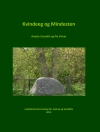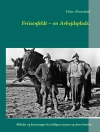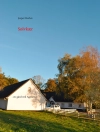Today the world’s largest economies and corporations trade in data and its products to generate value in new disruptive markets. Within these markets vast streams of data are often inaccessible or untapped and controlled by powerful monopolies. Counter to this exclusive use of data is a promising world-wide “open-data” movement, promoting freely accessible information to share, reuse and redistribute. The provision and application of open data has enormous potential to transform exclusive, technocratic “smart cities” into inclusive and responsive “open-cities”.
This book argues that those who contribute urban data should benefit from its production. Like the city itself, the information landscape is a public asset produced through collective effort, attention, and resources. People produce data through their engagement with the city, creating digital footprints through social medial, mobility applications, and city sensors. By opening up data there is potential to generate greater value by supporting unforeseen collaborations, spontaneous urban innovations and solutions, and improved decision-making insights. Yet achieving more open cities is made challenging by conflicting desires for urban anonymity, sociability, privacy and transparency. This book engages with these issues through a variety of critical perspectives, and presents strategies, tools and case studies that enable this transformation.
Spis treści
Foreword.- 1. Introduction: Open Data and the Generation of Urban Value.- Part 1 Urban Inclusion and Social Entrepreneurship.- 2. Homelessness and Open City Data: addressing a global challenge.- 3. Open Data and Racial Segregation: mapping the historic imprint of racial covenants and redlining on American Cities.- 4. Safer Cities for Women: global and local innovations with open data and civic technology.- 5. Open Online Platforms and the Collaborative Production of Micro Urban Spaces: towards an architecture of civic engagement.- 6. Slum Digitisation, its Opponents and Allies in Developing Smart Cities: the case of Kibera, Nairobi.- Part 2 Knowledge Ecosystems and Resilience.- 7. Mapping Climate Vulnerability with Open Data: a dashboard for place-based action.- 8. Urban Metabolism and Open Data: opportunities and challenges for urban resource efficiency.- 9. Tackling the Challenge of Growing Cities: an informed urbanisation approach.- 10. Linking Complex Urban Systems: insights from cross-domain urban data analysis.- 11. Interfacing the City: mixed reality as a form of open data.- 12. A Dashboard for the Unexpected: open data for real time disaster response Civic Innovation and Transparency.- 13. An Information Management Strategy for City Data Hubs: open data strategies for large organisations.- 14. Tell Me How My Open Data is Re-used: increasing transparency through the Open City Toolkit.- 15. From Repositories to Switchboards: local governments as open data facilitators.- 16. Understanding the Open Data Challenge for Building Smart Cities in India.- 17. Resilient Cities, User-Driven Planning, and Open Data Policy.
O autorze
Dr Scott Hawken is an Urban Designer with a passion for new technologies and their potential to improve cities. His work combines advanced geospatial methods and new large scale geospatial datasets to investigate ecosystem services, knowledge economies and other more experiential aspects of cities. He co-convenes the UNSW Smart Cities Research Cluster (SCRC) which seeks to promote and advance the efficient design, planning and delivery of urban environments and services through the use of spatially integrated information and communication technology.
Dr Hoon Han is an Associate Professor and Co-convenor of Smart Cities Research Cluster in the Faculty of Built Environment, University of New South Wales, Sydney Australia. His research interests are on geographic and temporal changes in urban form as well as urban technologies, in particular the dynamic changes occurring in response to technology implementation and adaptation in smart cities. This research involvesthe impact of new digital technologies (e.g., the Internet of Things (Io Ts) and Big Data) on human well-being, perceptions and adaptive behaviours.
Professor Chris Pettit is closely involved with a number of professional organisations and international initiatives. He is a past Director and Chair of the Surveying and Spatial Sciences Institute (SSSI) and is a member the Planning Institute of Australia (PIA). He is a board member of the International advisory board for the “Geo for All” initiative. He is Chair of the International Society for Photogrammetry and Remote Sensing (ISPRS) Technical Commission II Working Group on Geographical Visualization and Virtual Reality and Co-Chair of the Research Data Alliance (RDA) International Interest Group on Urban Quality of Life Indicators. More recently, working with NASA he has established the OSGeo Open City Smart initiative which is looking at fostering an international community in the development of City Smart applications.












